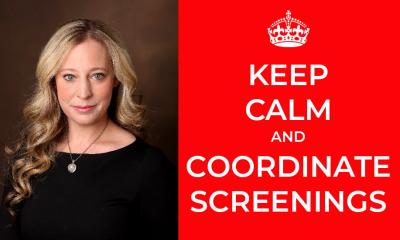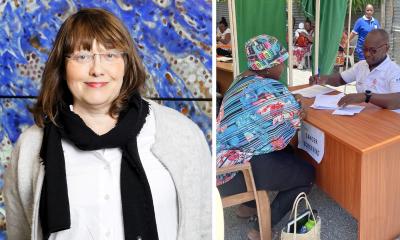Article • Ovarian cancer
The story of the silent killer
Andrea G. Rockall, Consultant Radiologist at the Royal Marsden Hospital and Visiting Professor of Radiology at Imperial College in London, delivered the prestigious Wilhelm Conrad Röntgen Honorary Lecture at ECR 2016 on ‘Imaging the invisible killer: towards personalisation of ovarian cancer care’.
Report: Sascha Keutel
A better understanding of this disease is urgently needed and imaging developments have an important role to play.
Prof. Andrea G. Rockall
For many cancers, there has been a steady improvement in patient outcomes, due mainly to early detection and novel therapies. With ovarian cancer, however, the most lethal gynaecological cancer in European countries, no such success can be reported.
The major problem with ovarian cancer is detection since in the early-stage the disease is rarely symptomatic and screening is not supported by trial evidence. Most patients present with disseminated peritoneal disease that can be surgically complex, Professor Rockall explained and added that CT is still inconsistent for prediction of surgical findings which limits its contribution only to surgical planning.
Another problem according to Professor Rockall is the fact that the initial response to chemotherapy is often followed by disease relapse which then develops resistance to the treatment: “A better understanding of this disease is urgently needed and imaging developments have an important role to play”.
The radiologist offered several suggestions to improve early detection such as MRI-supported ultrasound which may lead to successful screening and a radiological lexicon. Rockall introduced an algorithmic approach for the characterisation of masses which is currently being validated in large multi-centre studies. Furthermore, Rockall introduced current radiomic studies which are exploring imaging characteristics of underlying tumour biology. They aim to stratify ovarian cancer into distinct gene expression subtypes that may enhance therapeutic targeting.

“I hope I could convince you that imaging can personalise chemotherapy. Early detection of non-responders using advanced imaging techniques and potentially radiomics may play a significant role in the future. Imaging can indeed personalise the planning of surgery. The challenges of CT, which are very real, may be overcome through multiparametric MRI allowing optimization of the surgical approach”, Professor Andrea Rockall concluded her presentation.
Profile:
Andrea G. Rockall is a Consultant Radiologist at the Royal Marsden Hospital and Visiting Professor of Radiology at Imperial College in London, UK. She graduated from King’s College Hospital, London, in 1990 and received her radiology training at St Mary’s Hospital and University College Hospital, London. She was president of the International Cancer Imaging Society for 2015 and is a member of numerous organisations, including the British Gynaecological Cancer Society, the RCR and the National Cancer Intelligence Network.
05.03.2016











